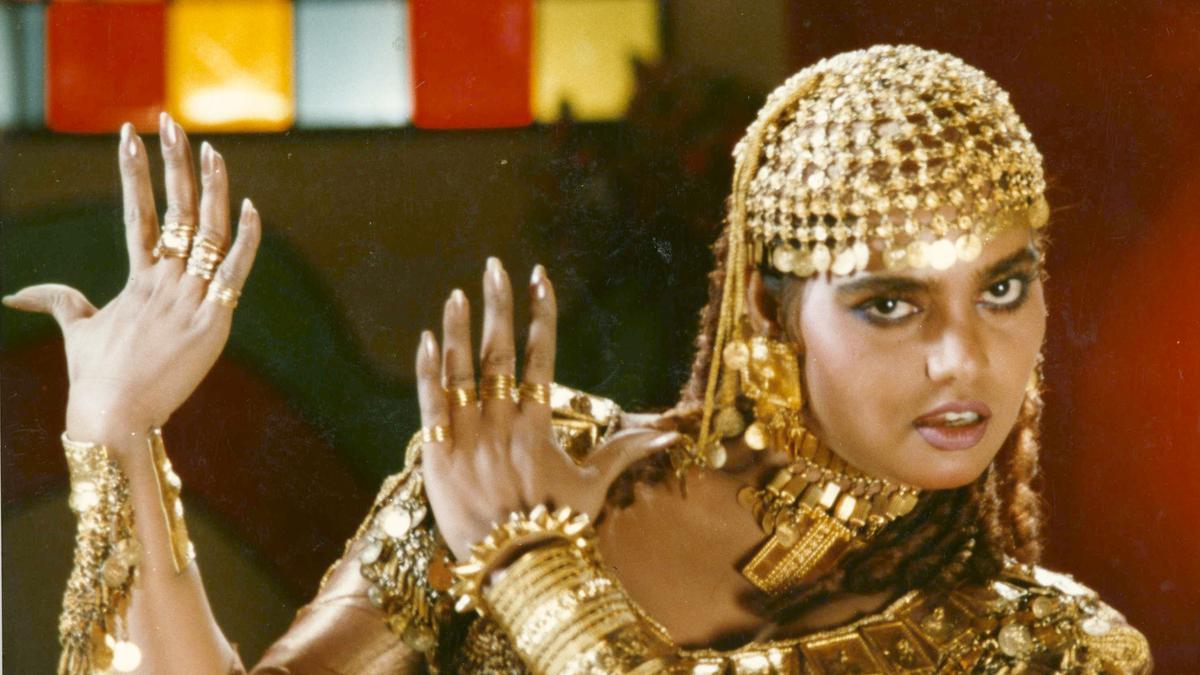
At the end of September, a significant date slipped by with little attention—September 23 marked the death anniversary of the iconic actor Silk Smitha. Despite the current lack of widespread recognition, she was a force to be reckoned with during her prime. Smitha captivated audiences and garnered legions of devoted fans who admired her bold on-screen presence and charisma.
In the 1980s, the portrayal of physical intimacy in Indian cinema was often symbolized by metaphors such as bees and flowers. Silk Smitha, however, broke these conventional barriers with her unapologetic self-assurance and intrinsic swag. She established herself as a unique entity in the film industry, finding a niche alongside the usual quartet of hero, heroine, comedian, and villain that dominated film posters. Her influence was such that her presence was inescapable in the bustling streets of Madras.
Operating within the commercial framework of films, Silk Smitha became a vital part of the cinematic landscape. While Hindi films had their share of head-turners like Helen, Smitha carved out her niche in the South Indian film industry. She was a master of roles that involved soft erotica in Malayalam and some Tamil films, yet she infused them with depth and strength.
Noted director Balu Mahendra, celebrated for timeless classics like “Moondram Pirai” and “Yathra,” cast Smitha in “Moondram Pirai,” where she shared the screen with titans Kamal Haasan and Sridevi. Despite the emotionally charged climax that wrung tears from audiences, Smitha delivered a memorable performance in a supporting yet pivotal role. The song “Ponmeni Urugudhe” was primarily aimed at male audiences, but it was Smitha who held her own amidst the magnetic presence of Kamal. During this era defined by the Rajinikanth-Kamal Haasan duopoly, Smitha managed to shine with her unique charisma.
.
Some film roles may have seemed contrived to showcase her allure, but Smitha had many parts that demanded emotional depth, such as her role in “Kozhi Koovuthu.” The song “Poove Iniya Poove” from this film became a hit, as did the “Puzhoyorathil” number from the Malayalam film “Adharvam” starring Mammootty. In Madras, a typical Tamil film could not go without a ‘Silk Smitha’ song, while many Malayalam films exhibited convoluted plots primarily designed to capitalize on her sensuality. Yet in films like Mohanlal’s 1995 hit “Spadikam,” Smitha demonstrated her versatility and compelling screen presence.
Beyond the glitz and glamour, there was an undeniable vulnerability that Smitha exuded, often overlooked until her untimely departure from the world in 1996 at the young age of 35. Her sudden demise echoed the shocking loss of another talented actor, Shobha, in 1980. Both tragedies highlighted the darker realities of the glamor industry, the pervasive patriarchy, and the exploitation that many faced.
September 23, Smitha’s anniversary, has since become a moment of reflection. Each year, her fans and admirers recall her legacy through various social media tributes that resurrect her memory at least for a day. It has been 28 years since Smitha left us, yet she still lingers in the public consciousness. Vidya Balan’s portrayal in “The Dirty Picture” explored and celebrated the legend that was Silk Smitha, ensuring that her aura and influence endure. Meanwhile, within the circles of college WhatsApp groups, former fans and admirers often find themselves misty-eyed, reminiscing about her unforgettable charm.
Despite the passage of time, Silk Smitha’s allure and legacy continue to captivate the hearts of those who remember her unique contributions to Indian cinema. Her audacity, appeal, and undeniable talent ensure that she remains a revered figure, long after her departure from the silver screen and the world.










